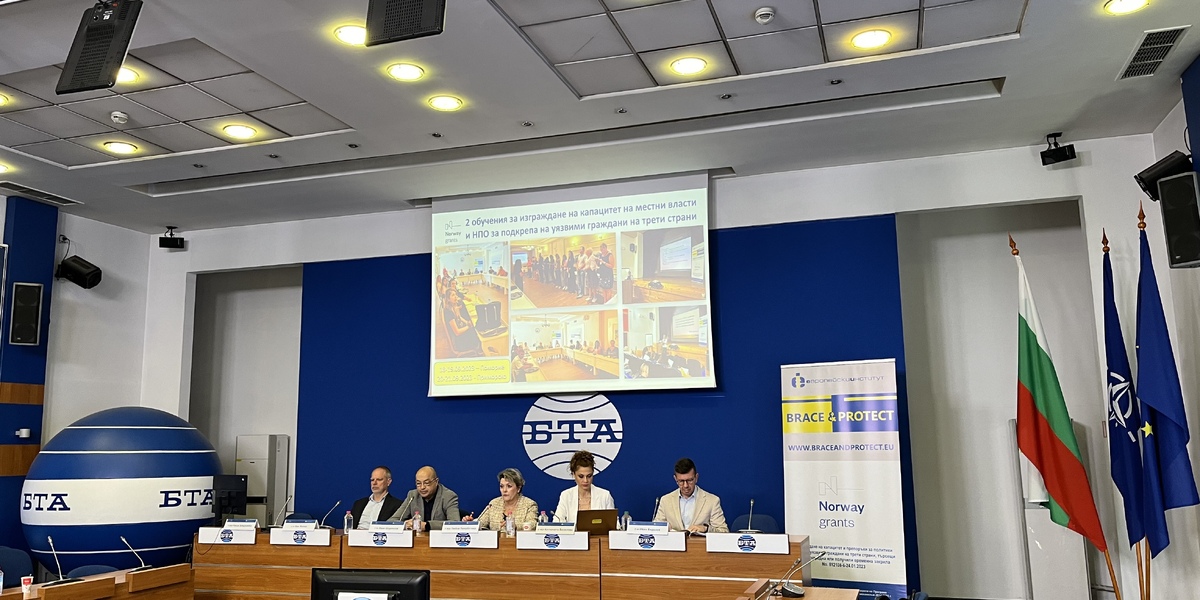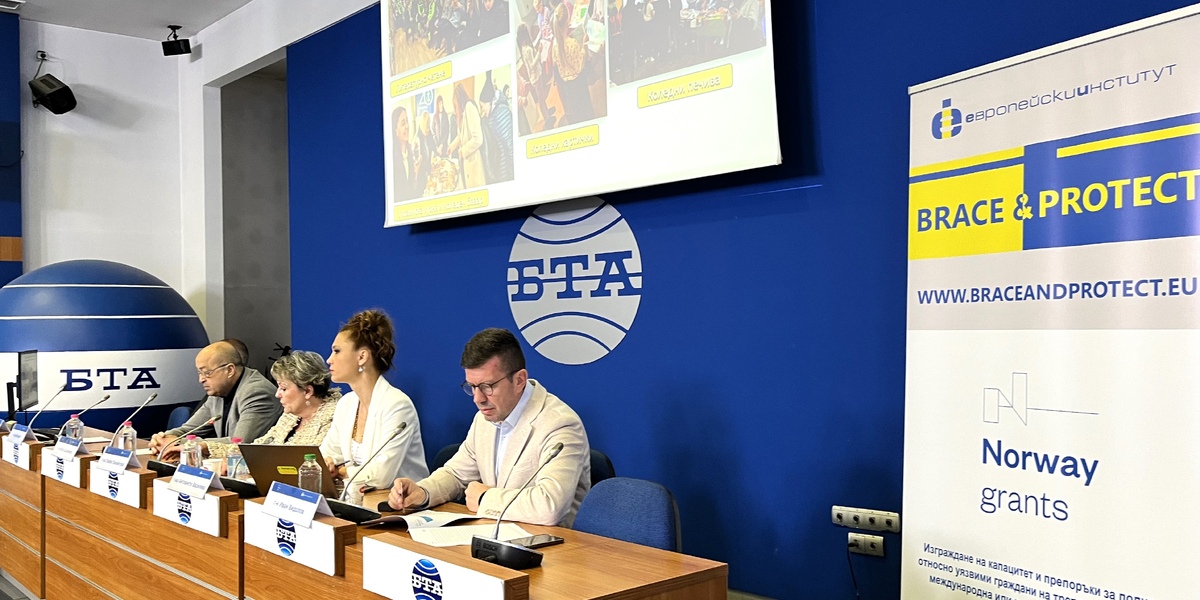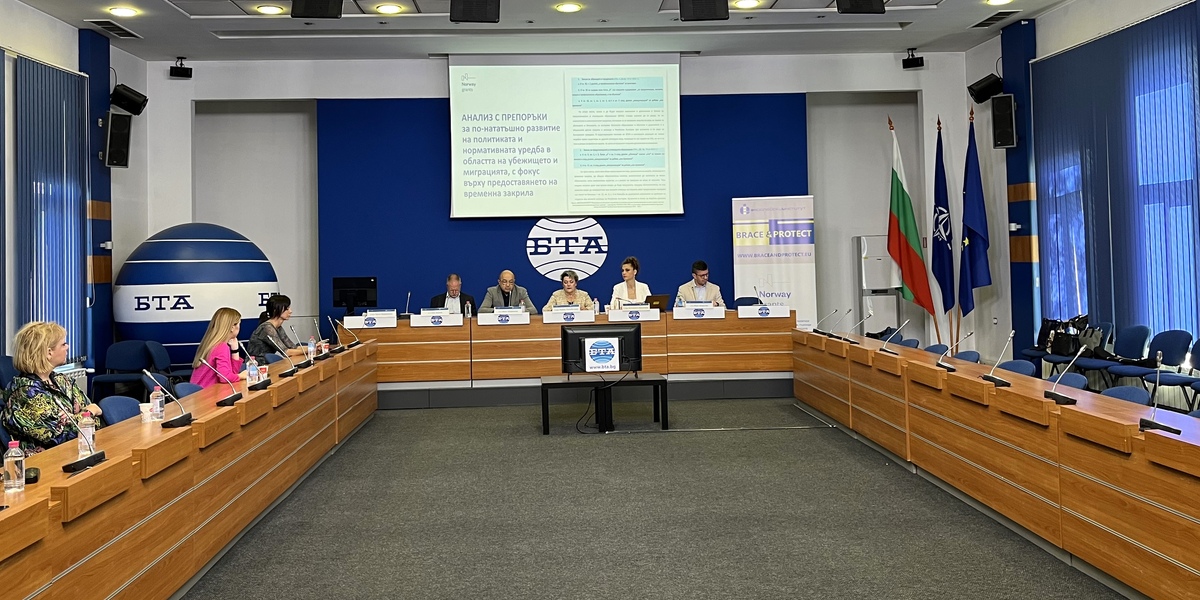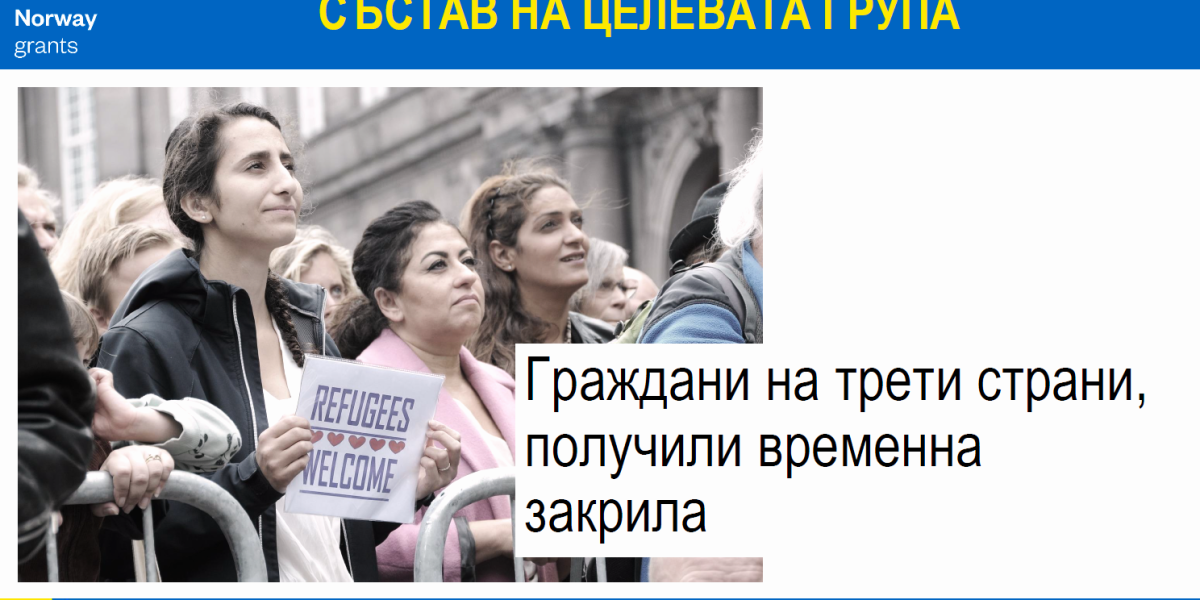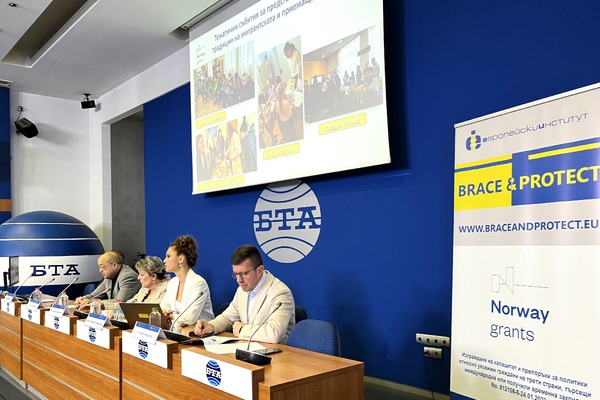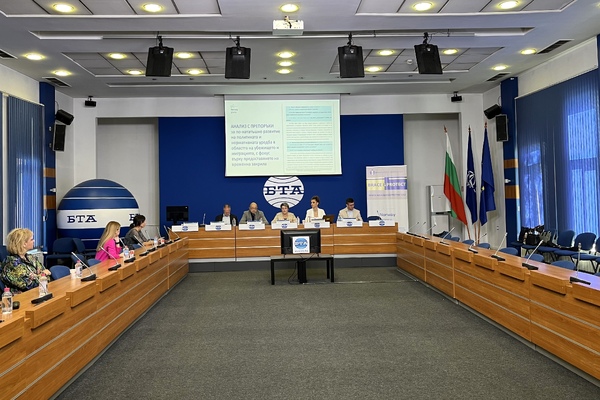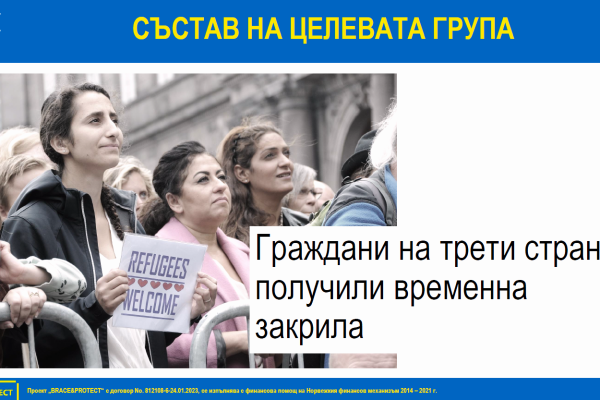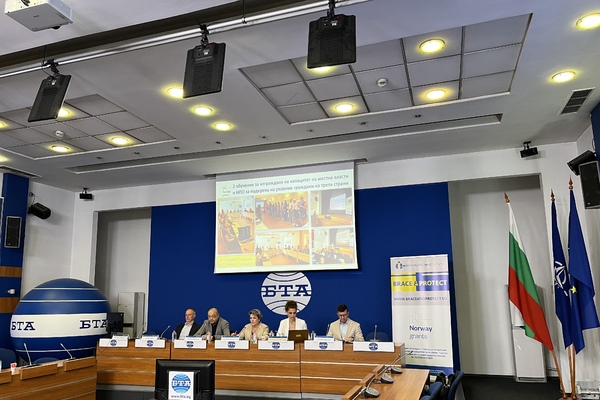
12-04-2024 12:48
How can asylum and migration policies be improved and why is it important to provide training to officials working in this field?
Summary results were presented at the closing event of the project "BRACE & PROTECT - Capacity Building and Policy Recommendations on Vulnerable Third-Country Nationals Seeking International or Temporary Protection", implemented by the European Institute Foundation and funded by the Norwegian Financial Mechanism. The project focuses on vulnerable groups of refugees, mainly from Ukraine.
"Bulgaria is more a transit destination for them," said Ivo Zhelev, an expert-analyst on the project. Of the 180 thousand people granted temporary protection in Bulgaria, 72 thousand are currently residing there. The main problem is that on arrival they were not given so-called social interviews, which would have provided full information about their social and health status, education, qualifications, financial capabilities, as well as the status of the children they were travelling with. This would make it possible to support those who are really in need, as well as to target qualified personnel to the needs that our labour market is experiencing, said Ms. Lyubov Panayotova, Director of the European Institute Foundation.
The project trained 260 representatives of institutions and organisations working in the field of asylum and migration. Trafficking and exploitation of human beings were also among the important topics, and the trainees' attention was focused on identifying and reporting these problems.
The lawyer Ivan Sharenkov focused on a legal issue regarding the status of Ukrainian refugees. They have been admitted to Bulgaria on the basis of the European directive on temporary protection, which is granted in case of military conflict and the entry of large groups of people. He assessed the measure as working, but only in the short term. Legislation currently does not allow for applying for international protection when temporary protection is granted. Ivan Vidolov added that persons with temporary protection status have a more limited range of rights. He recommended to provide access to higher education to these persons, which would be beneficial for both Ukrainian citizens and Bulgaria.




